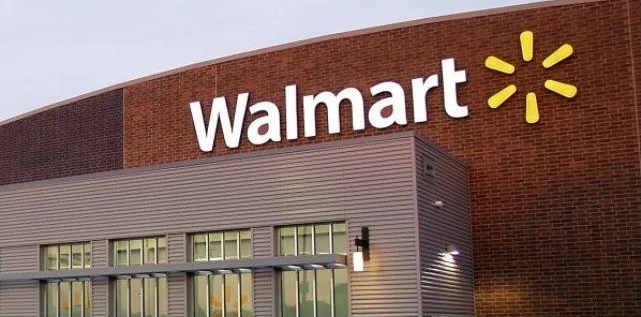
It is reported that Walmart, the largest retailer in North America, recently lowered its quarterly and full-year profit forecast again, a move that caused the company's stock price to fall by more than 8%, and the shares of other retailers including Target, Amazon and Macy's also fell.
Walmart said inflation has led consumers to spend more on essentials such as food and less on items such as clothing and electronics, a shift in spending that has piled goods on store shelves and warehouses, forcing the company to slash prices.
Based on the current environment and the company's outlook for the rest of the year, Walmart expects adjusted EPS to decline by about 8% to 9% and 11% to 13% in the second quarter and full year, respectively. The company had previously expected a flat to slight increase in the second quarter and a decline of about 1% for the full year.
Walmart is the largest retailer in the United States and is considered a bellwether for the industry. The company said more and more customers are turning to stores known for their low prices to fill up their pantries and refrigerators, but skip non-essential common items.
Consumer spending is the backbone of the U.S. economy (it accounts for two-thirds) and an important indicator of a possible recession in the country. The more people pay for housing, food and fuel, the less money they have to spend on non-essential items like electronics and clothing. When consumers back off, businesses experience a build-up of inventory, which causes prices to drop and delays ordering from suppliers. All this has led to a slowdown in economic growth.
Big retailer Target was one of the first to signal choppy waves ahead. The company cut profit forecasts twice in May and June, saying it had to cancel orders and increase price cuts to get rid of unwanted items. It blamed the problem on inventory mismatches, such as televisions, bicycles and appliances popular during the pandemic, and said it wanted to make room for back-to-school supplies and holiday shopping.
In addition, the US consumer electronics retailer Best Buy (Best Buy) yesterday cut its fiscal year performance forecast, saying that under the influence of inflation, demand for consumer electronics products has weakened. Companies such as Kohl's and Gap have also issued profit warnings in the past few weeks. Several companies, including e-commerce platform Shopify and video game retailer GameStop, have announced layoffs.
Apparel sales in the U.S. have been falling since the week ended March 12, falling 15.6% year over year in the week ending July 2, according to Bank of America credit card data.
Bank of America Securities analyst Lorraine Hutchinson said in a note to clients on Tuesday that her firm is lowering its earnings forecasts for the apparel industry as inventory builds and discounts run rampant.
In addition, Hutchinson said that niche retailers targeting high-income consumers, such as Lululemon, could still do well. Luxury group LVMH also said on Tuesday that high-income consumers may still be willing to splurge. The company said its second-quarter sales rose 19% from a year earlier, driven by growth in its fashion and leather goods divisions.
Previous:Less raise equals lower salary? Strike brewing at UK's largest container port
Next:The freight rate has fallen for seven consecutive years! Shipping companies aggressively suspend sai